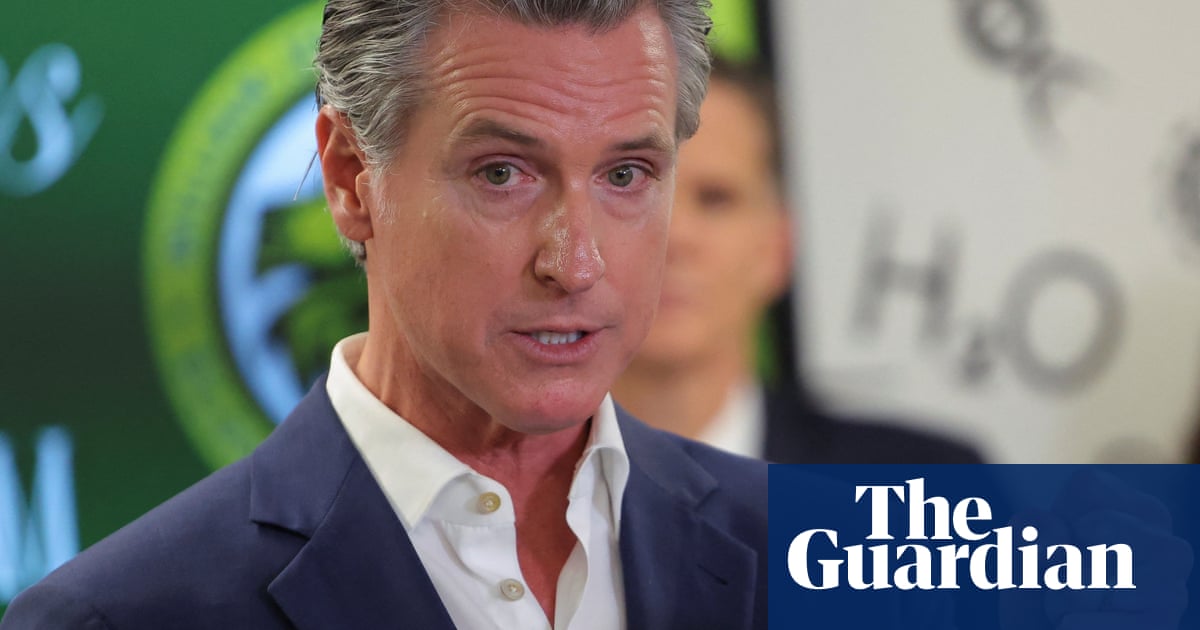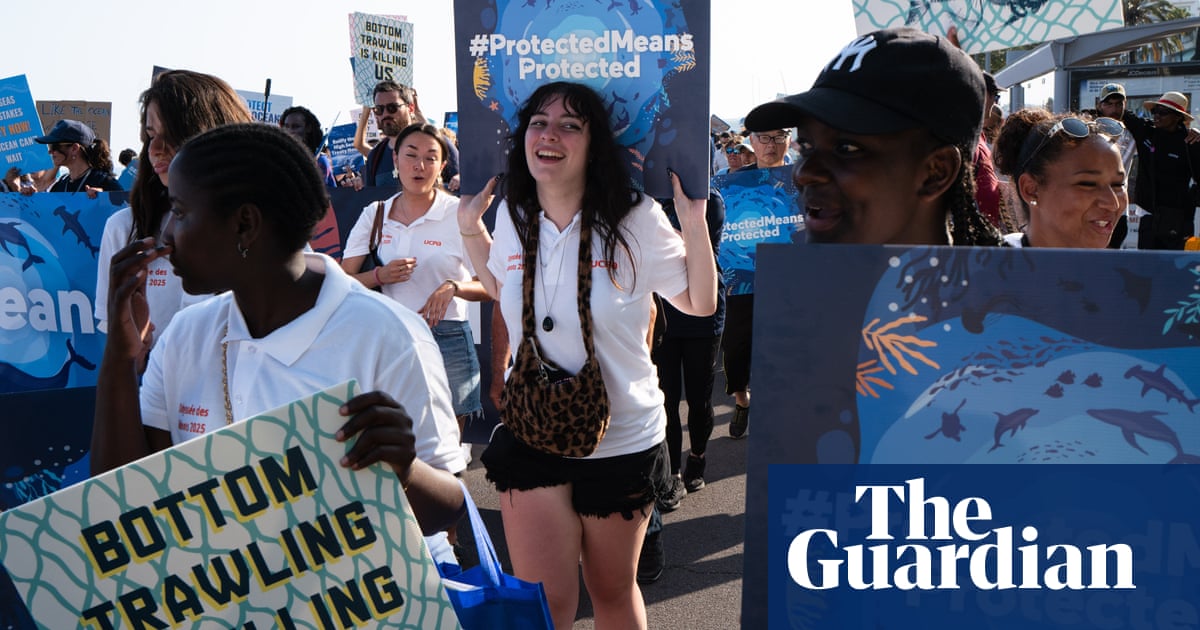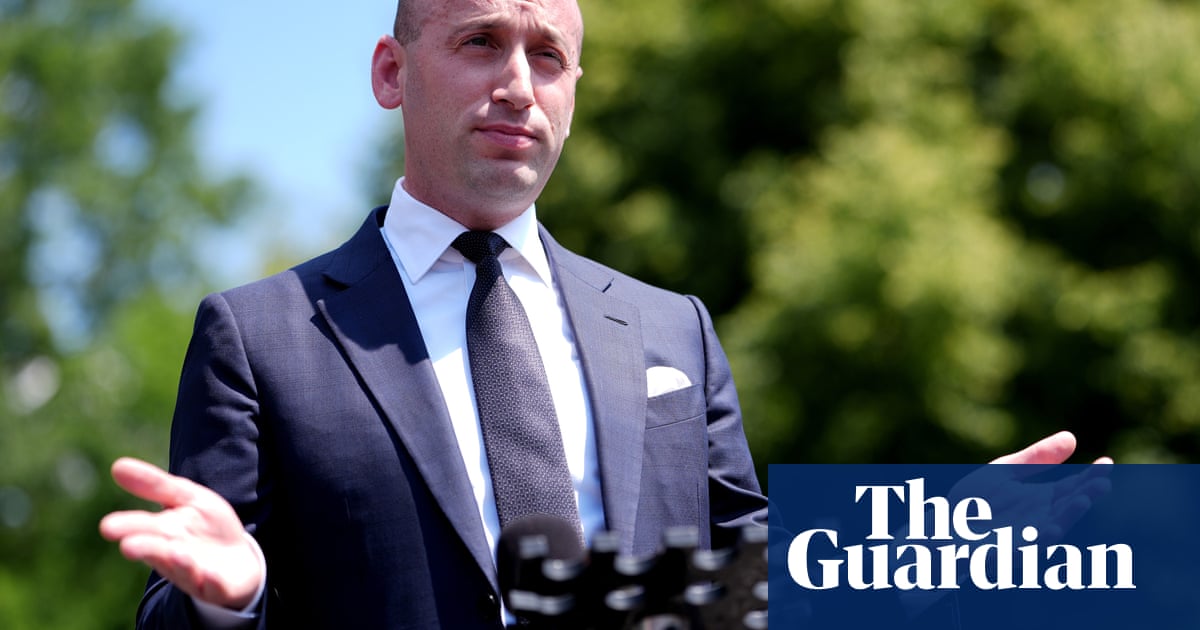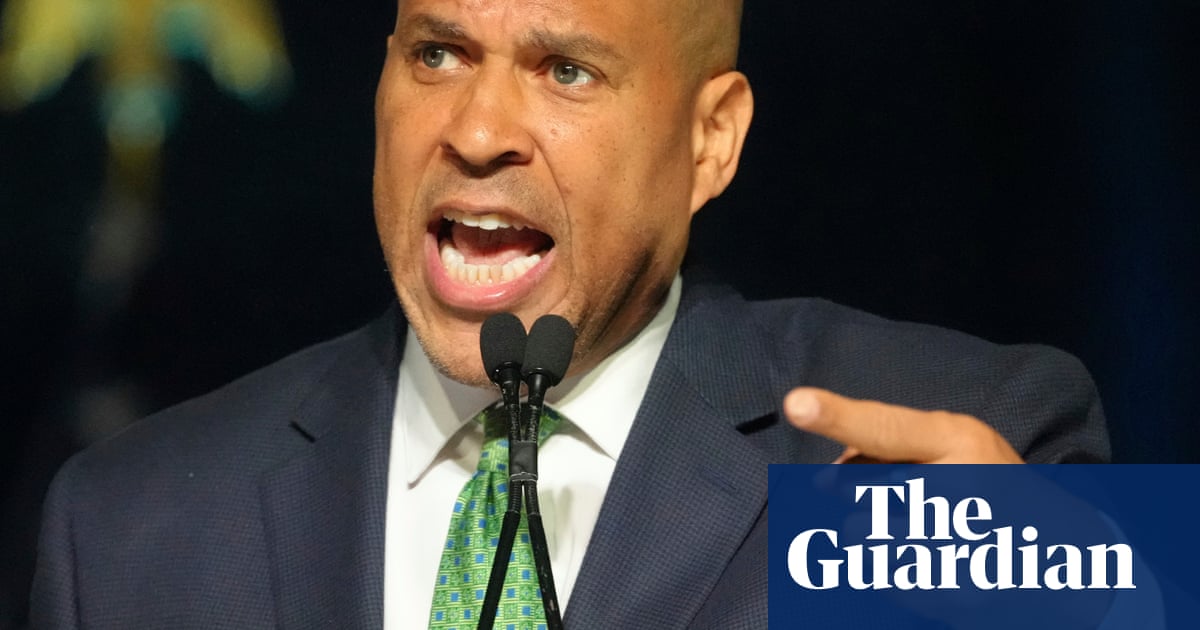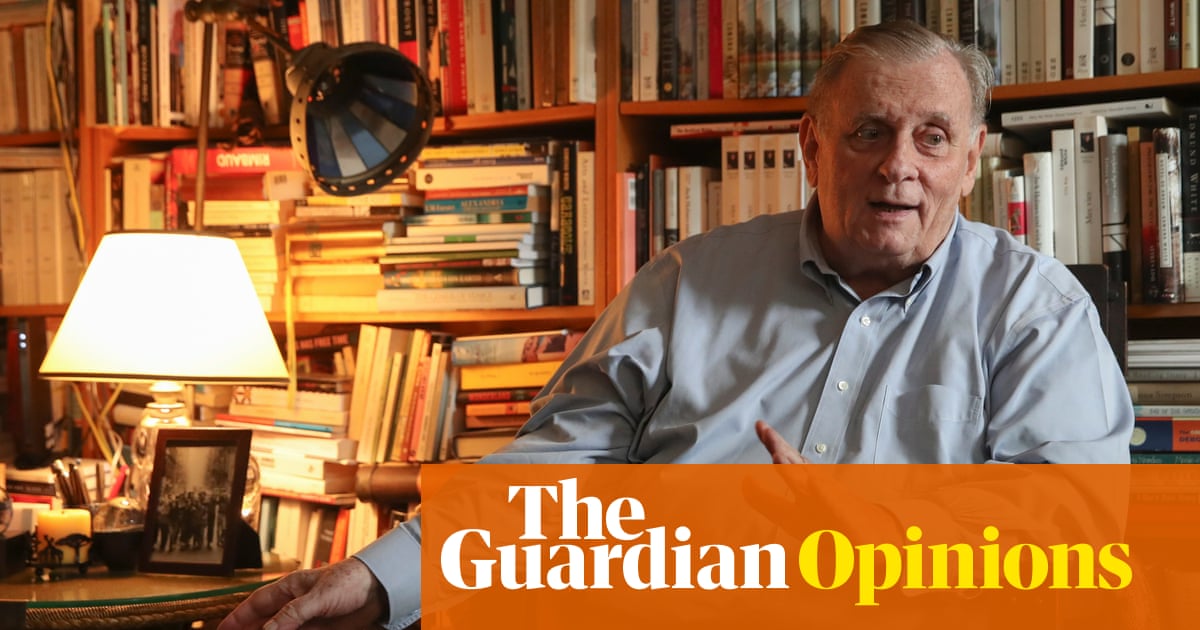A fossil fuel company’s $300m lawsuit against Greenpeace opens in rural North Dakota on Monday, in a case that has been widely condemned by constitutional rights experts as baseless, bad faith litigation that threatens free speech.
Energy Transfer Partners, a Dallas-based oil and gas company worth almost $70bn, accuses Greenpeace of defamation and orchestrating criminal behavior by protesters at the Dakota Access pipeline (Dapl).
The anti-pipeline protests in 2016 and 2017 were organised by Standing Rock and other Sioux tribes and supported by more than 300 sovereign tribal nations, inspiring an international solidarity movement after Energy Transfer’s private security unleashed attack dogs and pepper spray against nonviolent protesters.
Tens of thousands of people from across the country and world participated in the Dapl protests, and Greenpeace was among scores of non-profit groups that supported the Standing Rock tribe’s opposition to the pipeline.
But Energy Transfer alleges in court filings that thousands of protestors were “incited” to come to North Dakota thanks to a “misinformation campaign” by Greenpeace.
The lawsuit has been widely denounced as a classic strategic lawsuit against public participation (Slapp) – a form of civil litigation increasingly deployed by corporations, politicians and wealthy individuals to deliberately wear down and silence critics including journalists, activists and watchdog groups.
The case threatens to bankrupt Greenpeace US, but the biggest impact could be a chilling effect on free speech and activism more broadly, according to environmental and civil liberty experts consulted by the Guardian. The five-week jury trial is scheduled to start on 24 February in Mandan, Morton county.
“This case is an emblematic example of a Slapp lawsuit – a way of weaponizing the legal system by wealthy and powerful people to silence their critics by dragging them through long, stressful, expensive litigation where winning is almost irrelevant,” said Kirk Herbertson, a New York based attorney and the US director for advocacy and campaigns for EarthRights International.
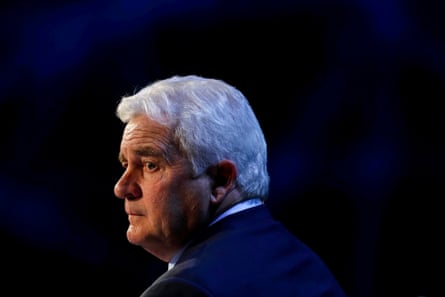
“This was not a Greenpeace event. They were not controlling what the people coming in were doing … there is nothing in the court filings that show Energy Transfer suffered actual harm due to actions by Greenpeace,” added Herbertson. “This case feels more like a trophy hunt and an attempt to shut down free speech rather than an actual good faith attempt to seek remedies for harm.”
Energy Transfer first filed a Rico lawsuit in 2017 alleging federal racketeering and state tort claims. At the time Kelcy Warren, the company’s billionaire founder and a major donor to Donald Trump, told CNBC that the company was “greatly harmed” by Greenpeace.
“Everybody’s afraid of these environmental groups and the fear that if you fight back it may look wrong … but what they did to us is wrong and they’re going to pay for it,” said Warren. Warren has previously said environmental activists should be “removed from the gene pool” and a Wall Street Journal profile of him detailed his relentless pursuit against green groups.
The federal racketeering case was dismissed on 14 February 2019, but seven days later Energy Transfer re-filed a virtually identical suit in North Dakota state court. Energy Transfer is suing three Greenpeace entities, claiming that they are a single organization rather than independent members of the Greenpeace network.
After six years and thousands of filings, this will be the first case under the new Trump administration to test what the first amendment will look like.
The lawsuit centres around nine statements made by Greenpeace during the Indigenous-led protests – none of which were original to the group, while three were taken from two letters written by another organization, including one with more than 500 signatories. Greenpeace argues that the statements are legitimate expressions of the first amendment protected right to speech.
Energy Transfer is also seeking to hold Greenpeace liable for actions taken by protesters that have no proven connection to the group.
“Greenpeace is a great big target. If you’re trying to send a message to the world, go after Greenpeace,” said James Wheaton, a longtime journalism law professor at Stanford and UC Berkeley who founded the First Amendment Project. “The pipeline lawsuit is a classic Slapp suit.
More than 330,000 individuals and 430+ organizations including Amnesty International, the American Federation of Teachers and Indigenous Environmental Network have signed an open letter denouncing the lawsuit as meritless – and an attempt to rewrite history by claiming that Greenpeace orchestrated what was an Indigenous-led movement.
The Standing Rock tribe has always asserted that the pipeline is a violation of its sovereignty as it crosses unceded historical and sacred Sioux territorial lands. The tribe wants a federal court to shut down the pipeline, and in October filed a lawsuit accusing the army corps of engineers of unlawfully allowing it to operate without an easement, a complete environmental assessment or sufficient emergency spill response plans.
“The tribe was 100% responsible and autonomous in their decision making and how they protested … this Energy Transfer lawsuit is aimed at creating a mortal blow through the legal system to a legacy non-profit that has done some of the most important environmental protection advocacy in US history,” said Scott Wilson Badenoch, a former chair of the American Bar Association’s Environmental Justice Committee and veteran international trial monitor.
He added: “It is utterly clear that Slapp suits are bad faith to their very core … the venue choice in this case is obviously part of what makes it a Slapp. The jury pool seems to be impossibly tainted … We’ve been involved with trial monitoring in places like Cambodia and Ecuador that were easier to monitor than this case in the United States of America.”
Badenoch is among a team of independent prominent civil rights attorneys and advocates who will monitor the trial amid growing concerns about judicial bias and violations of due process – and the threat posed by the case to free speech and the right to protest.
Judge James Gion was assigned to the case from another North Dakota jurisdiction after every single judge in Morton county recused themselves due to conflicts. Yet the judge has denied requests from Greenpeace’s legal team to move the case to a different court due to concerns about potential jury bias. In 2024, 75% of voters in Morton county backed Trump. During his first term, Trump ordered an expedited review of the Dapl project after it was hit with obstacles by the Obama administration.
Another concern for the independent committee of observers is the size of the courtroom, which has very limited seating. Gion denied a motion from Greenpeace to livestream proceedings, ruling that this would interfere with Energy Transfer’s “right to a fair trial”. A key pretrial hearing on 4 February was held online without public access. Yet the court in Morton county has previously permitted Court TV to livestream homicide trials. A request by the trial monitoring committee for live streaming was also denied.
In recent weeks, mysterious rightwing mailers have arrived at the homes of local residents that Greenpeace alleges could further taint the jury pool. The mailers, made to look like a newspaper and dubbed “Central ND News,” contain articles slanted against the pipeline protest or in favor of Energy Transfer, among stories about immigration and community news. None of the articles have named bylines. A publisher’s note in a January edition similarly is not signed with a name but instead by “Central ND Times Publishers.”

The stories within the mailer slant in favor of fossil fuels. One article in the January edition, next to a chart of gas prices around the state, is an interview of a former protestor who now says she believes the protestors created “a local ecological disaster” and approves of the pipeline. A February edition features a business leader who claims the protests primarily caused “division”.
Greenpeace sought to investigate whether the mailers were paid for, directly or indirectly, by Energy Transfer, but the judge denied its request for discovery on the issue. Warren, the Energy Transfer CEO, made a donation to a political action committee that then paid a publishing company affiliated with the group behind the mailer, ExxonKnews reported in December.
The judge has also allowed Energy Transfer to seal thousands of pages of evidence that appear to include details of the pipeline’s safety history. The Standing Rock tribe’s opposition to the pipeline is in part due to the risk posed by leaks in Lake Oahe, the primary source of water for the community. The company, which operates in 44 states, has a chequered environmental health and safety record, and was responsible for the worst pipeline fuel leaks in 2024.
On Tuesday, the judge denied all the motions for summary judgments filed by Greenpeace’s attorneys in April 2024, and argued last June. Greenpeace is represented by Davis Wright Tremaine, a firm known for representing first amendment cases.
An Energy Transfer spokesperson said: “Our lawsuit against Greenpeace is not about free speech as they are trying to claim. It is about them not following the law. We support the rights of all Americans to express their opinions and lawfully protest. However, when it is not done in accordance with our laws, we have a legal system to deal with that. Beyond that we will let our case speak for itself.”
Energy Transfer is represented by Gibson Dunn & Crutcher – the firm that represented Chevron against Steven Donziger, the environmental advocate sued by the firm after helping Amazonian communities in Ecuador win a landmark pollution case. “This appears to be part of a broader strategy by the fossil fuel industry to weaponize the courts against activists and weaken organizations like Greenpeace in retaliation for their advocacy,” said Donziger, a member of the trial monitoring committee.
The monitoring team also includes Marty Garbus, who has represented numerous high-profile figures such as Leonard Peltier and Nelson Mandela; Indigenous rights lawyer Natali Segovia of the Water Protector Legal Collective; and Jeanne Mirer, president of the International Association of Democratic Lawyers.
Slapps and related legal tactics are being increasingly used globally to silence environmental and social justice activists, especially by fossil fuel corporations and the ultra-wealthy.
Warren previously issued a Slapp lawsuit against Texas lawmaker Beto O’Rourke after he critiqued Warren’s massive profits during the 2021 Texas winter storm. (The case was dismissed.) Trump has filed almost 4,100 lawsuits over the past three decades, including seven defamation suits as a private citizen.
“We are generally used to seeing government as the biggest threat to free speech. But in an era of massive, massive wealth inequality, it’s not that surprising to see a trend of using money to suppress speech and kind of control democratic processes,” said Shayana “Shane” Kadidal, senior managing attorney at the Center for Constitutional Rights.
Earlier this month Greenpeace International filed a lawsuit in a Dutch court to recover “all damages and costs it has suffered as a result of ET’s back-to-back, meritless lawsuits”. This is the first test of a new European law aimed at curbing malicious lawsuits intended to silence journalists, rights activists and public watchdogs. In the US, two bipartisan efforts to pass federal anti-Slapp legislation have not gone anywhere.
“This lawsuit is an attempt to divide the movement, but it has not been successful,” said Deepa Padmanabha, Greenpeace’s senior legal advisor. “Energy Transfer and the fossil fuel industry do not understand the difference between entities and movements. You can’t bankrupt the movement. You can’t silence the movement. There will be a backlash and a price to pay when you pursue these kinds of tactics. People power is more powerful.”

 3 months ago
57
3 months ago
57



